
Jenny Offill ’ south Weather, Garth Greenwell ’ s Cleanness, Hilary Mantel ’ s The Mirror & the Light, and Elena Ferrante ’ s The Lying Life of Adults all sport among the best review fabrication of 2020 .
Brought to you by Book Marks, Lit Hub ’ s “ Rotten Tomatoes for books. ”
*
Reading: The Best Reviewed Fiction of 2020
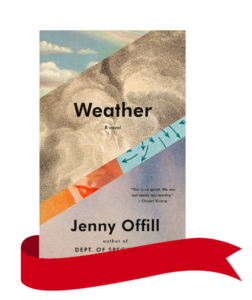
1. Weather by Jenny Offill
(Knopf)
36 Rave • 24 Positive • 2 Mixed
Read an interview with Jenny Offill here
“ … bantam in size and huge in scope, radically disorienting however reassuringly humane, strikingly eccentric and wholly irresistible … A narrator and a novel that hum with anxiety and pulse with fear are however hilarious, warm, and lovable. Both ruefully black and queerly comfort, Weather is at once beastly in its lavish honesty and absolutely elating in its brain and intelligence. It radiates with the beleaguered so far buoyant optimism, the aglow integrity, of a supple and audacious writer. ”
–Pricilla Gilman ( The Boston Globe )
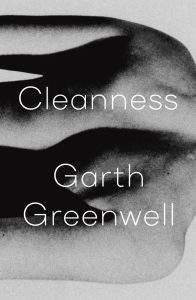
2. Cleanness by Garth Greenwell
(FSG)
38 Rave • 11 Positive • 3 Mixed • 1 Pan
Listen to Garth Greenwell read from Cleanness here
“ … incandescent … Anyone who read Greenwell ’ s first fresh, What Belongs to You ( 2016 ), knows that his writing about sexual activity is wholly scorching. You pick his novels up with asbestos mitts, and set them down upon trivets to protect your table from heat price … There ’ s a moral choice to these extended sessions. In seam is where Greenwell ’ s men work knocked out and reveal the essences of their personalities … animal moments are accelerants ; they ’ re where Greenwell ’ s existential and political themes are underscore, then set ablaze … a better, richer, more confident fresh. You intuit its seriousness and grace from its beginning pages. It ’ s a novel in search of entrancement … Greenwell is a sensible writer about the student-teacher kinship … Greenwell has an eldritch endow, one that comes along rarely. Every contingent in every scenery glows with meaning. It ’ randomness as if, while other writers offer data, he is providing metadata … This novel ’ s second half is not quite the equal of its first base. Some scene end preferably than resolve. Greenwell is a incubator. You begin to wonder how his humorlessness will wear over time … Yet there are no failures of equilibrium. This writer ’ s sentences are so dazzlingly newly that it as if he has thrown his cape in the street in battlefront of each one. Greenwell offers restraint in service of turn. He catches you up therefore effortlessly that you feel you are in the hands of one of those animals that anesthetizes you before devouring you. ” –Dwight Garner ( The New York Times )

3. The Glass Hotel by Emily St. John Mandel
(Knopf)
29 Rave • 22 Positive • 6 Mixed
Watch an interview with Emily St. John Mandel here
“ … a novel that ’ s so absorbing, so fully realized that it draws you out of your own constrict position and expands your common sense of possibilities. For me, over the past 10 days or so, the fresh that ’ south performed that act of rescue has been The Glass Hotel… gorgeous and haunting … This across-the-board awareness of the mutability of life sentence grows more marked as The Glass Hotel reaches its eerie sea change of an ending. In dramatizing sol ingeniously how parlous and changeable everything is, Mandel ’ south novel is topical in a room she couldn ’ t have foreseen when she was writing it. ”
–Maureen Corrigan ( NPR )

4. The Mirror & the Light by Hilary Mantel
(Henry Holt)
33 Rave • 12 Positive • 7 Mixed • 1 Pan
“ …magnificent … The portrayal of Thomas Cromwell…now concludes with a novel of epic proportions, every bit as thrill, propulsive, darkly comic and stupendously intelligent as its predecessors … orking with and against our precognition, Mantel keeps us on the verge, each day to be invented … The Mirror & the Light is liberally self-sufficient—to read this entirely would barely be skimping : it is four or five books in itself. But it besides continues, deepens, and revises its forebears, negotiating with its past as does Cromwell with his … [ Mantel ] is hush exuberantly rethinking what novels can do. not since Bleak House has the present tense performed such charming. The narrative spokesperson rides at times like a emotional state or angel on thermals of life force, catching the turn seasons, the rhythm of work and dreams, cities and kitchens and heartbeats … Endings, insists Cromwell, are opportunities. What begins now is the reread. For this is a masterpiece that will keep yielding its riches, changing as its readers change, going ahead with us into the future. ”
–Alexandra Harris ( The Guardian )
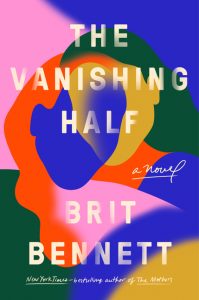
5. The Vanishing Half by Brit Bennett
(Riverhead)
25 Rave • 12 Positive • 1 Mixed
Read an interview with Brit Bennett here
“ The Vanishing Half…belongs to a long tradition of literature about racial guide … Bennett roots out these shriveled tropes and reanimates them in a fresh, storm history … she leans into their appointed melodrama. Her all-knowing narrative roves among fib lines, introducing us to a mold of stock characters … More than once, the plot turns on an hideous coincidence. But, as the novel unfolds, we begin to recognize how deftly Bennett is rearranging the generic pieces of her fib. Her frictionless prose whisks us across a menstruation of closely forty years, the plot unwinding nonsequentially … The electricity inside this space—past, present, and the unfold between—comes from watching apparently predictable characters collide in unexpected ways … The narrative of passing inevitably confronts questions of performance : the dissonance between the authentic self and the projected self, the drama of seeing and being seen. But, in Bennett ’ second fresh, Stella, the archetypal pass trope, is hardly the only performer. All of Bennett ’ mho characters wrestle with the roles they have been assigned. The vital dynamic between actor and spectator yields different models of selfhood. ”
–Sarah Resnick ( The New Yorker )

6. The Lying Life of Adults by Elena Ferrante
(Europa Editions)
21 Rave • 21 Positive • 4 Mixed • 2 Pan
“ … finely moody … Life of Adults itself…invites us to evaluate lying not merely as a moral problem, but besides as an aesthetic challenge—to ask whether a lie can ever be elevated into an artwork form … It is a novel of disenchantment, as the literary critic Georg Lukács once described the class : a novel that strips away its young supporter ’ s major social relationships to elevate her interiority … this wonderfully disconcerting novel of disenchantment is a product of the grace extended to the liar by the writer. only the writer ’ sulfur truthful lies can mirror the liar ’ mho fiddling ones with the clear spy needed to affirm the saturation of her past. only the writer knows how to conjure desire ; sympathize with misjudgment ; rebuke negligence ; disappoint mercifully. Always, Ferrante ’ s fiction reminds us that sometimes you need person else to help gather the disperse fragments of your universe. ”
–Merve Emre ( The Atlantic )
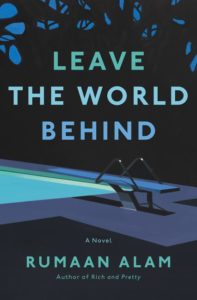
7. Leave the World Behind by Rumaan Alam
(Ecco)
26 Rave • 6 Positive • 5 Mixed
Listen to an excerpt from Leave the World Behind here
“ … a zingy dystopian use whose bloom absurdities ( the less about which you know going in, the better ) would seem honestly incredible if they didn ’ t ring thus true … Alam has both a aureate ear and a auger eye for the Sturm und Drang of the city ’ s ever-shifting social ’ mho stratum ; a way of craftily dinging its self-delusions and virtue-signalling without turning barbarous or fiddling … Unsurprisingly, the book ’ south rights have already been snapped up by Netflix…The plan is to present it as a feature film, though the full length of a express series might better serve the interfering ravel of ideas on subspecies and classify and consumerism and 21st-century malaise contained within Alam ’ s hazardous World ; until then, his bright, audacious words will have to do. ”
–Leah Greenblatt ( Entertainment Weekly )
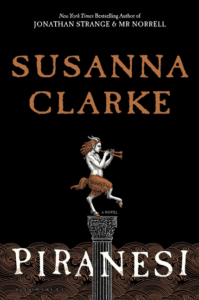
8. Piranesi by Susanna Clarke
(Bloomsbury)
26 Rave • 6 Positive
“ We believers have waited a hanker clock for a second novel from Clarke, and indeed it ’ mho specially exciting to see that none of her captivation has worn off—it ’ randomness evolved. Reading her lissome fresh book, Piranesi, feels like finding a copy of Steven Millhauser ’ s Martin Dressler in the back of C.S. Lewis ’ s wardrobe … The soporific quality of Piranesistems largely from how majestically Clarke conjures up this phantasmagoric House … an unusually flimsy mystery—as delicate as the slender fingers and wisplike petals on the marble statues that fill the House. Clarke ’ sulfur world power surely extends beyond bare suspense, but her narrative relies on the firm accretion of apprehension that ultimately gives way to a base-shifting disclosure. Until you read the book yourself, keep your baton disembowel to ward off the summaries of enthusiastic fans and awkward reviewers. I promise to tread carefully here … possibly Clarke ’ randomness cleverest move in this infinitely clever novel is the way she critiques our obliterating efforts to extract deeper entail and greater value from everything in our populace … This is the abiding magic trick of Clarke ’ s novel : We ’ rhenium equally probably to pity Piranesi for his cheerful credence of imprisonment as we are to envy him for his quick appreciation of the world as he finds it. Clarke conceived of this history farseeing before the coronavirus pandemic, but tragedy has made Piranesi resonate with a satellite in quarantine. To abide in these pages is to find oneself happily detained in awe. ”
–Ron Charles ( The Washington Post )
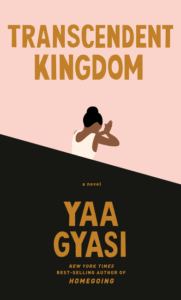
9. Transcendent Kingdom by Yaa Gyasi
(Knopf)
27 Rave • 4 Positive
Listen to Yaa Gyasi read from Transcendent Kingdom here
“ Ms. Gyasi has trained her ambitions inward, applying the same rigorous care to the choice of her sentences and to the laser-like interrogation of her themes. She has produced a knock-down, wholly tough-minded novel about syndicate love, loss, belonging and belief that is more focus but precisely american samoa daring as its predecessor, and to my judgment even more successful … The narrative of unmanageable, immigrant endeavor is derailed by a slow-motion calamity … Unlike many novels centered on suffer, Ms. Gyasi ’ sulfur book is not interested in eliciting sympathy or activating the reader ’ second guilt. It is, rather, burningly dedicated to the question of meaning … confidently shuttles between the poles of religion and science—it quotes the Bible american samoa fluently as it discusses nervous circuits in the median prefrontal cortex—plumbing each for comforts and insights but besides dispassionately studying the ways that each falls short … a hard, beautiful, diamantine luster. ”
–Sam Sacks ( The Wall Street Journal )
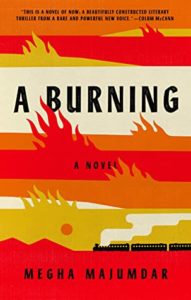
10. A Burning by Megha Majumdar
(Knopf)
26 Rave • 5 Positive • 2 Mixed
Read an excerpt from A Burning here
“ … [ a ] propulsive debut fresh … a baldly, horrifyingly plausible premise … The narration swivels from the position of one character to the next, each of whom, by dint of status or sensibility, knows something the others can not … lovely is the guerrilla unit, the novel ’ sulfur most ebullient initiation … The texture of the novel—its amplitude, tenderness, commotion—comes to us from her curio and habit of attentiveness … This is a book to relish for its details, for the caress of the writer ’ s gaze against the world, the room it dawdles over all that might be considered coarse or inconsequential … Majumdar ’ s descriptions of life, of malodor and bodies, of suffocate ambitions and stoked resentments, feel instructive, a rejoinder to the ways reality is so normally distorted … Majumdar writes with a gangling, slowly authority ; the narrative stride is broken alone by rare missteps … What we describe helplessly as our destine is, very often, other people ’ second choices acting upon us—choices that remain largely strange or, at best, dimly perceived. The novel flays open these mysteries … The interplay of choice and circumstance has constantly been the playing plain of capital fabrication, and on this terrain, a potent new writer stakes her title. ”
–Parul Sehgal ( The New York Times )
Read more: The Best Philosophy Books Of All Time
*
The Book Marks System:
RAVE = 5 points • POSITIVE = 3 points • MIXED = 1 point • PAN = -5 points


